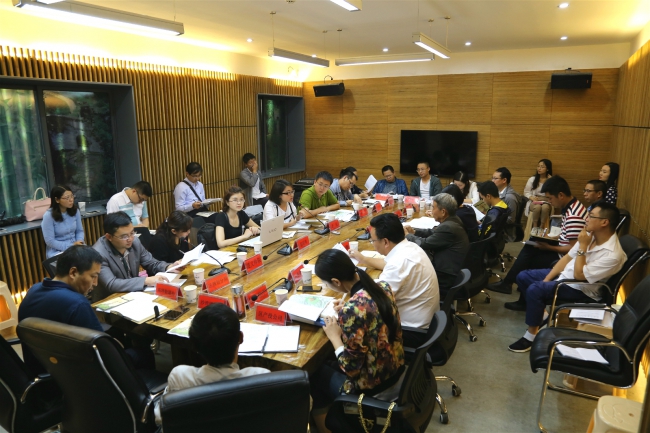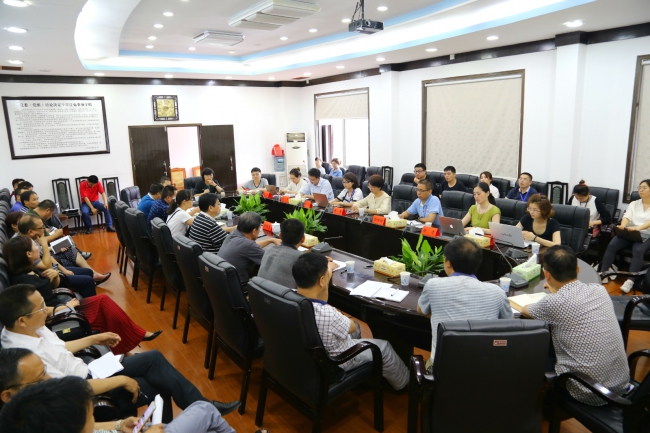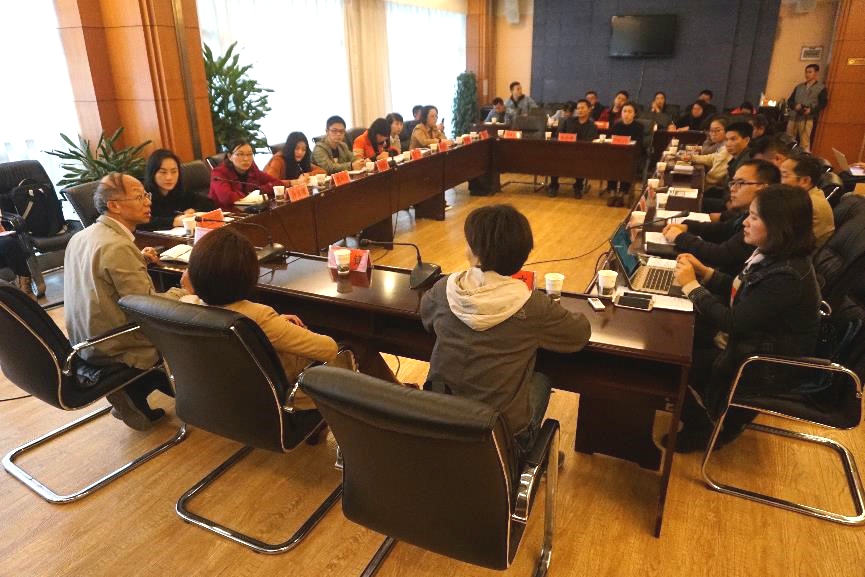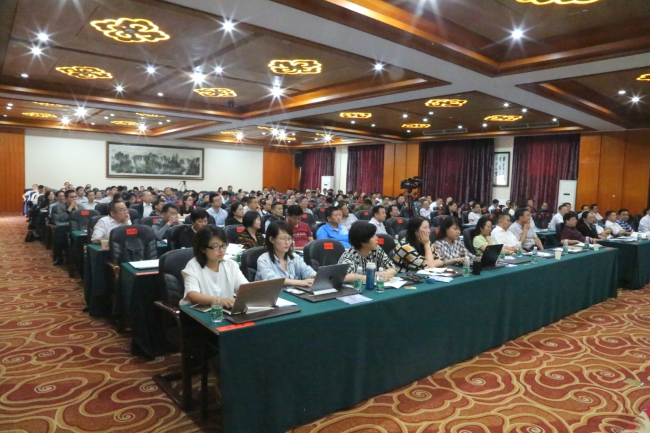| UNESCO World Heritage and Sustainable Tourism Programme - Chinese Pilot Programme |
| PublishDate:2018-03-15 Hits:2404 |
Huichuan District Forum
Wulingyuan District Forum
The World Heritage Committee, at its 34th session in Brasilia in 2010, recognizing the increasing challenges and opportunities relating to tourism for World Heritage properties, ‘requests the World Heritage Centre to convene a new and inclusive programme on World Heritage and Sustainable Tourism, with a steering group comprising interested States Parties and other relevant stakeholders, and also requests the World Heritage Centre to outline the objectives and approach to the implementation of this programme’. In 2012, the World Heritage Committee adopted the World Heritage and Sustainable Tourism Programme (hereafter referred to as ‘WH+ST’) at its 36th session (36 COM 5E), as the activity of the Strategic Action Plan for the Implementation of the World Heritage Convention 2012-2022 (WHC-11/18.GA/11) and promoted by the World Heritage Centre at the global scale.
In 2015, Mr. Peter Debrine, project manager of WH+ST from the World Heritage Centre, visited the World Heritage Institute of Training and Research for the Asia and the Pacific Region (WHITRAP), a Category Ⅱ Centre under the auspices of UNESCO. He proposed WHITRAP to initiate a pilot programme in the Asia-Pacific region which could started from China. Based on the consensus, WHITRAP implements the “World Heritage and Sustainable Tourism Programme” (WH+ST) - Chinese Pilot Programme (2016-2020). The Chinese Pilot Programme is aimed to implement the UNESCO’s WH+ST programme through capacity building and research. Case studies and comparative analysis at selected pilot sites will be launched to identify the main issues and solutions related to sustainable tourism in China, thus contribute to the application of sustainable tourism in Chinese contexts.
Base of the five objectives of the WH+ST Programme, the Chinese Pilot Programmeis[1] carried out according to the following themes: 1.Management of World Heritage as a Tourism Destination 2.Outstanding Universal Values - Based Sustainable Tourism 3.World Heritage Tourism Economy and Tourism Products 4.World Heritage Tourism and Community Engagement: Heritage Conservation and Community Empowerment
In April 2017, WHITRAP selected two Chinese Pilot Heritage[2], one is The World Natural Heritage—Wulingyuan Scenic and Historic Interest Area and another is The World Cultural Heritage—Tusi sites (Hailongtun). Two Programme Research Groups were formed under the leadership of Professor Han Feng, the project leader and Li Hong, programme specialist. Two Groups drew up technology roadmap according to the existing problems in properties, completed the field study of core zone and buffer zone which covers an area of 403.88 kilometers through different research methodologies which include literature review, site investigation, depth interview, questionnaire and so on; further analyzed the carrier of outstanding universal value and its display and explanation situation of the heritage sites. They also visited more than 60 relevant management departments, collected relevant planning documents and acknowledged the current management system and planning system, deeply analyzed and compared the conflict between different plannings. In order to have a deeper understanding, two groups surveyed the current tourism development and needs of heritage sites, benefits of local residents,visited relevant tourism companiesto find out their development dilemma and plans.
Hailongtun Traing Workshop
Wulingyuan Training Workshop
Besides, WHITRAP organized training workshop separately for relevant departments of two heritage sites, brought benefit to 281 agencies and more than 600 people. Professor Han Feng,the project leader of Programme Research Group; Professor Xiao Qianhui, the former director of Department of Tourism; Professor Dan Wenhong and Associate Professor Xiao Shizhen from Guizhou Normal Univeristy and Professor Xie Li ,Senior Programme Specialist of ICOMOS China were invited to give speecheson World Heritage and Sustainable Tourism, Interpretation and Explanation of Heritage Value, Sustainable Tourism and Community Development, Tourism Development of Heritage sites and so on.Representatives from relevant authorities were gather at the workshop to join the discussion and concluded the possible solution of the existing problems and its action plans. By the end of 2017, WHITRAP finished current analyze of two heritage sites andmidterm reports. In 2018, WHITRAP will report programme progress in the 41stWorld Heritage Committee and by the end of 2018, finish the research report and give the guidance, in addition; WHITRAP will convene domesticand foreign experts, leaders and managers of heritage sites to have an expert evaluation meeting, paving the way for optimize research results and next pilot programme. [1] More information about Chinese pilot programme is available on www.whitr-ap.org [2] The criteria for pilot sites can refer to the research subject: UNESCO World Heritage and Sustainable Tourism Programme - Chinese Pilot Programme, <WH+ST Chinese Pilot Programme> on the website. To make sure the depth and quality of the research, this research cycle is from 2017 to 2018 and will not add any new pilot site. About the next round of recruitment information, please follow the relevant announcements in 2019. |
- Documentary: 2023 World Heritage Creative X Innovators Conference and the AWHEIC Third Anniversary Celebration
- Publication | WHITRAP Newsletter No. 61
- Mt. Huangshan first show in Climate Action for World Heritage
- Call for Good Practices: 2024 Environment and Resilience
- FAQs | 2024 Call for Good Practices
- Operational Guidelines for the Implementation of the World Heritage Convention 2017
Copyright © 2009-2012 World Heritage Institute of Training and Research-Asia and Pacific (shanghai)






